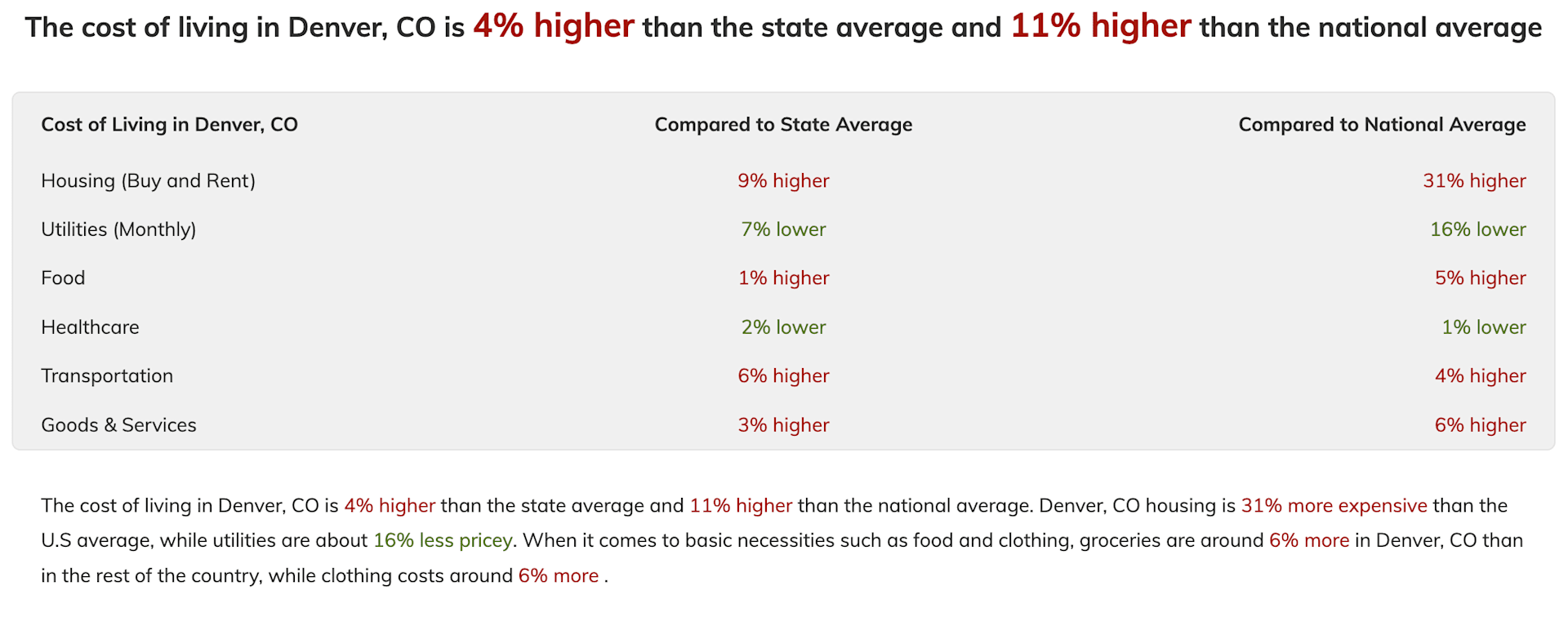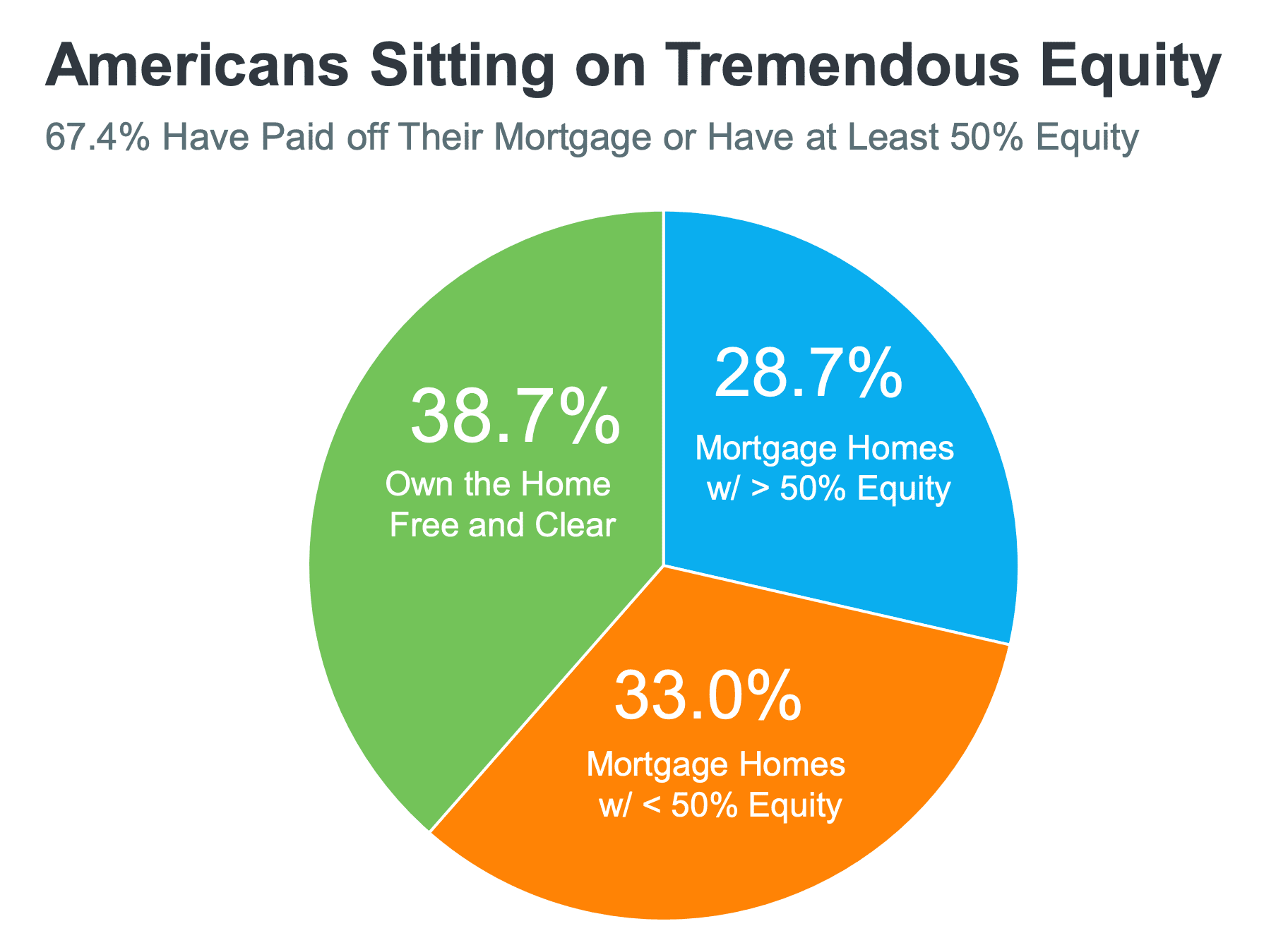Are you feeling the pinch of rising costs in the Denver metro area? As the cost of living continues to climb, many residents are contemplating a move to more affordable pastures. Whether it's the soaring housing prices, inflation, or simply a desire for a change of scenery, relocating out of Denver might be on your mind. In this guide, we'll explore the factors contributing to the escalating costs in the Denver metro area, provide insights into more affordable locations, and offer a comprehensive checklist for those considering making the move.
Understanding the Cost of Living in Denver Metro: Denver and its surrounding areas have experienced rapid growth and development in recent years, driving up the cost of living. Factors such as increased demand for housing, limited inventory, and a booming job market have contributed to escalating prices. Additionally, inflationary pressures have further exacerbated the situation, impacting everything from groceries to healthcare.

According to data from the U.S. Bureau of Labor Statistics, Denver's cost of living index has been steadily increasing, outpacing the national average. Housing costs, including rent and home prices, have seen significant spikes, making it challenging for many residents to afford suitable accommodation. In fact, the cost of rent here increased by more than 45 percent between 2021 and 2022, and home prices are well above the national average. One study from Point2Homes, a real estate data firm, estimates that home prices in the metro area increased by more than 162 percent between 2011 and 2021.
Exploring Affordable Alternatives: If you're feeling the financial strain of living in Denver metro, there are plenty of affordable alternatives to consider. From neighboring states to more rural areas within Colorado, here are some options worth exploring:
-
Neighboring States: States like Colorado, Arizona, Utah, and New Mexico offer lower costs of living compared to Denver metro. Cities such as Albuquerque, Tucson, and Salt Lake City provide relatively affordable housing options while still offering amenities and opportunities for employment.
-
Rural Areas: Consider exploring rural areas within Colorado, where housing prices may be more reasonable. Towns like Pueblo, Fort Collins, and Grand Junction offer a lower cost of living while still providing access to urban conveniences.
-
Researching Affordability Indices: Utilize online tools and resources to compare the cost of living between different cities and states. Websites like Numbeo, Cost of Living Calculator, and Zillow can provide valuable insights into housing affordability, transportation costs, healthcare expenses, and more.
-
Quality of Life Considerations: Evaluate factors beyond just the cost of living, such as climate, recreational opportunities, healthcare facilities, and educational institutions. Finding a balance between affordability and quality of life is essential for long-term satisfaction.
So how do I afford this move? Many homeowners in the Denver metro area find themselves sitting on a substantial amount of equity due to the unprecedented appreciation of property values in recent years. With home prices soaring, many properties have appreciated significantly, leaving homeowners with a considerable amount of equity. This equity can serve as a valuable resource for those considering a move to more affordable locations. Homeowners can leverage this equity through options such as home equity loans, cash-out refinancing, or selling their property at a profit. By tapping into their home equity, homeowners can access funds to finance a move to a more affordable area, cover relocation expenses, or even purchase a new home outright, providing financial flexibility and opportunities for a fresh start elsewhere.

Checklist for Moving Out of State: Moving out of state is a significant decision that requires careful planning and consideration. To help you navigate the process smoothly, here's a comprehensive checklist:
-
Financial Assessment: Evaluate your current financial situation, including savings, income, debt, and expenses. Determine your budget for relocation and living expenses in the new location. Consider job search and job security as crucial factors, ensuring that your income in the new area will be sufficient to cover your expenses and maintain financial stability.
-
Research Destination: Thoroughly research potential destinations, considering factors such as cost of living, employment opportunities, climate, healthcare, education, and community amenities. Explore job markets in your desired location to assess the availability of suitable employment opportunities and the overall job security in your chosen field.
-
Sell or Rent Your Home: Decide whether to sell or rent out your current home in Denver metro. Consider consulting a real estate agent to assess the market value of your property and explore your options. Take into account the potential financial implications of selling or renting your home, including tax considerations and ongoing maintenance costs. This is where my expertise comes in!
-
Packing and Moving: Plan your packing and moving logistics well in advance. Obtain quotes from moving companies, declutter your belongings, and organize a timeline for packing and transportation. Factor in any potential job-related relocation assistance or benefits that may be available to you.
-
Notify Important Parties: Notify relevant parties of your relocation, including your employer, utility providers, financial institutions, and subscription services. Arrange for mail forwarding with the postal service. Keep your employer updated on your relocation plans and ensure a smooth transition in terms of your employment status and benefits.
-
Update Legal Documents: Update your driver's license, vehicle registration, voter registration, and any other legal documents with your new address. Make sure your employment-related documentation reflects your new location, including tax withholding forms and any necessary licenses or certifications.
-
Establish New Services: Set up essential services at your new residence, including utilities, internet, cable, and insurance coverage. Research job search resources and networking opportunities in your new area to facilitate your employment transition and integration into the local community.
-
Community Integration: Take proactive steps to integrate into your new community, such as joining local clubs, attending events, and networking with neighbors. Engage with professional associations and job search support groups to expand your network and access potential job opportunities.
Moving your life to another state can be an incredibly daunting and emotionally taxing experience, especially for those who find themselves priced out of their home state like many residents in the Denver metro area. The thought of leaving behind familiar surroundings, cherished memories, and established social networks can evoke feelings of sadness, anxiety, and uncertainty. It's understandable to feel overwhelmed by the prospect of uprooting your life and starting anew in a different location. However, amidst the challenges lie opportunities for growth, adventure, and a fresh start. Embracing change can open doors to new experiences, career prospects, and a more affordable standard of living. Moving to a more affordable state offers the chance to build a brighter future, free from the financial constraints that may have hindered your aspirations in the past. It's a chance to reimagine your life, pursue your dreams, and create a better tomorrow for yourself and your loved ones.
While the journey may be difficult, the rewards of taking this leap of faith could be immeasurable.
How can I help?





